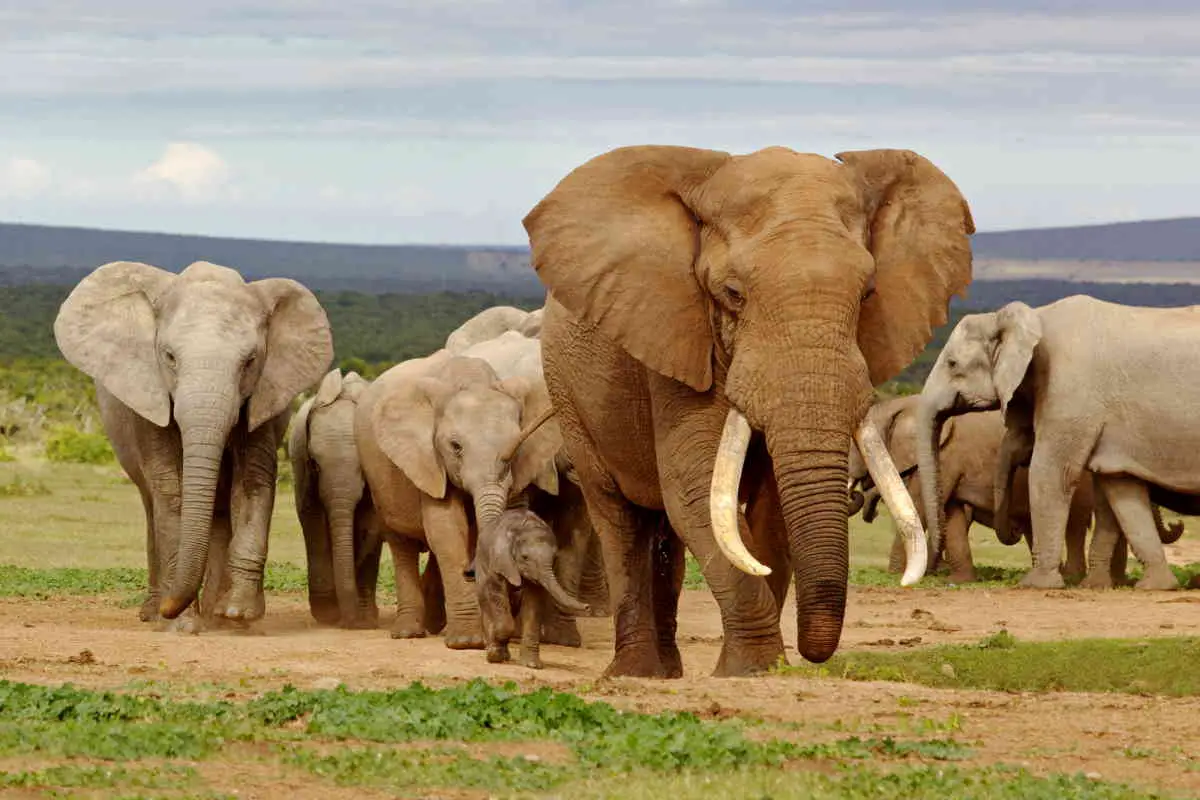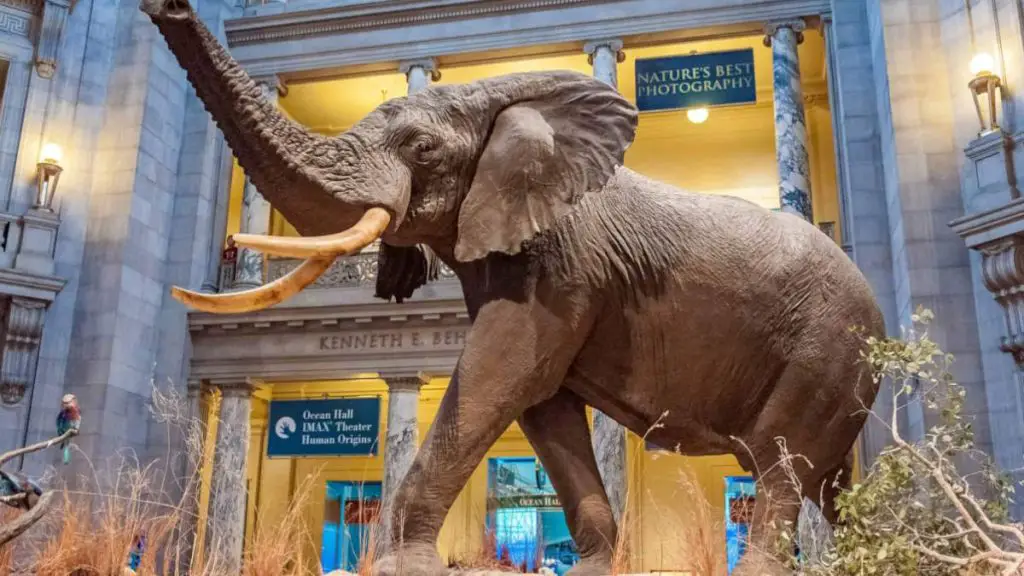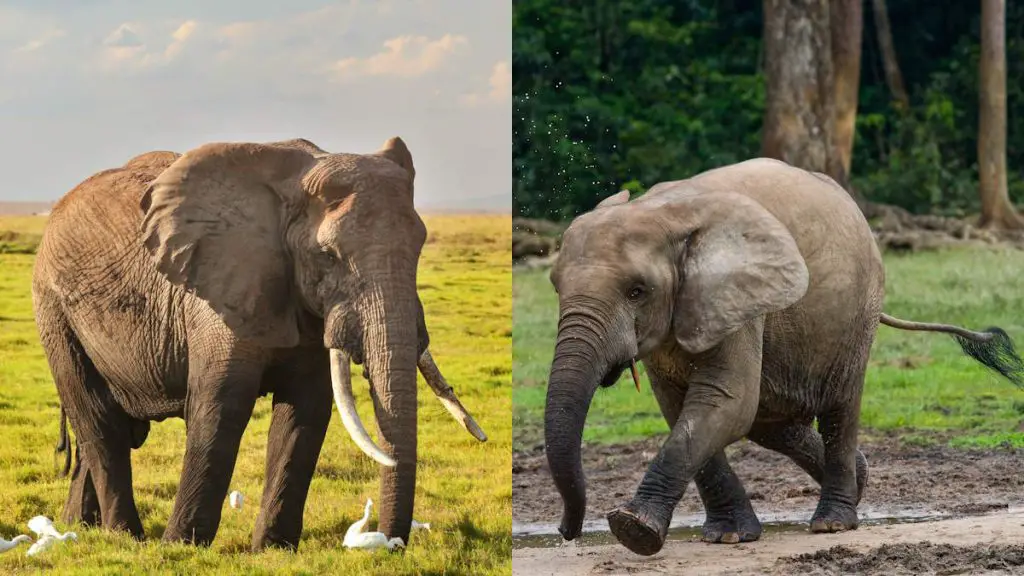Have you ever wondered how many elephants are left in the world, as of 2024? Elephants are wonderful creatures for many reasons! They are intelligent and social animals that form close bonds with one another and live in complex family groups. They are also highly adaptable and can survive in a variety of different habitats, from the savannas of Africa to the rainforests of Asia.
In addition, they play important roles in their ecosystems as keystone species, meaning that their presence can have a significant impact on the overall health and balance of their habitats. Finally, elephants have unique and fascinating biology, including their large size, long lifespan, and remarkable memory.
But, unfortunately, we, humans, are killing these amazing animals at a horrible pace.
How many elephants are left in the world, as of 2024?
It is difficult to give an exact number, as elephant populations can vary significantly from year to year due to a variety of factors such as poaching, habitat loss, and conflict with humans. According to the most recent estimates, as of 2024, there are thought to be around 415,000 African elephants and between 40,000-100,000 Asian elephants remaining in the wild, making the total number of elephants between 455,000 and 515,000.
As of 2024, there are 476,819 elephants living worldwide, according to data from the World Population Review website.
However, these numbers are likely to change over time, and it is important to continue monitoring and protecting elephant populations to ensure their long-term survival.
The bad thing is, according to the Elephant Guide website, the African Elephant population has dropped by 62% in the last decade and is expected to drop another 30% by 2025 making them an endangered species.
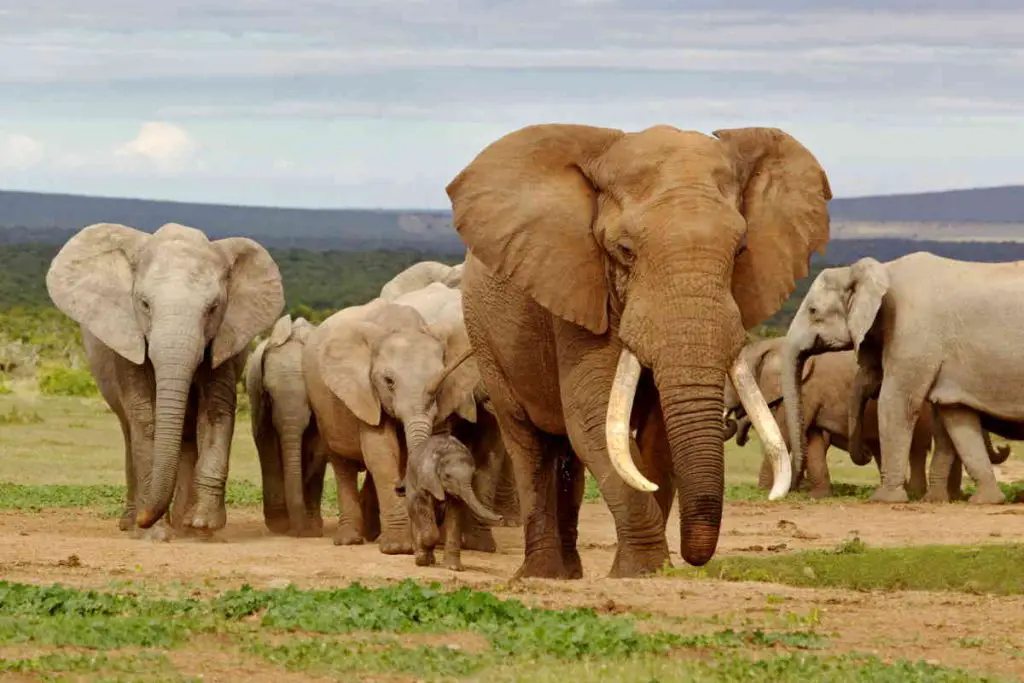
According to the international non-governmental organization World Wide Fund for Nature, as early as 1930, around 10 million wild elephants roamed huge swaths of the African continent.
Elephants are often targeted for their ivory tusks, which are highly valued on the black market and can fetch high prices. The demand for ivory, particularly in Asia, has led to the widespread poaching of elephants in Africa and Asia, and it is estimated that tens of thousands of elephants are killed each year for their ivory.
Poaching is a major threat to elephant populations, and it can have serious impacts on the overall health and stability of elephant populations and their habitats. Efforts to combat poaching and reduce demand for illegal ivory are crucial for the conservation of elephants and other endangered species.
Habitat loss is one of the most significant threats to elephant populations worldwide. As forests and grasslands are converted into agricultural land, urban areas, and infrastructure, elephants lose access to the vast, interconnected territories they require for food, water, and migration. Fragmentation of habitats forces elephants into smaller, isolated areas, increasing human-elephant conflicts as they encroach on farmland or settlements in search of resources.
This not only endangers their survival but also places local communities at risk. Habitat loss disrupts their social structures, feeding patterns, and breeding behaviors, further threatening their populations. Protecting and restoring elephant habitats is crucial for ensuring their long-term survival and maintaining the biodiversity and ecosystems they play a critical role in supporting.
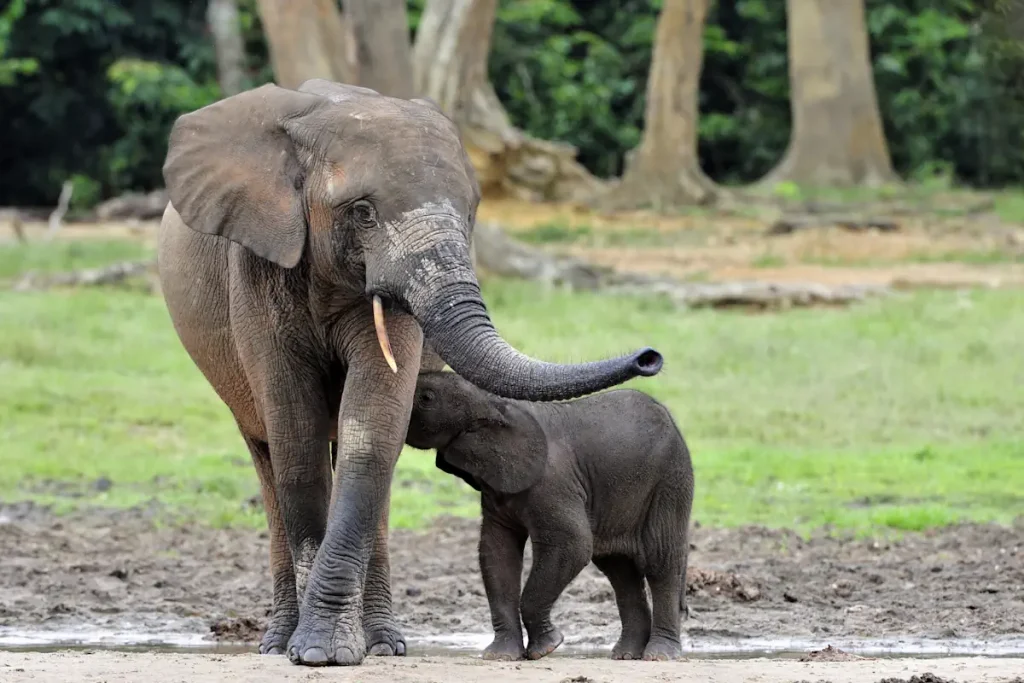
Habitat fragmentation and isolation in wildlife populations, such as elephants, leads to a phenomenon called a genetic bottleneck, where the genetic diversity within a population sharply decreases. This occurs when animals are confined to small, isolated habitats due to habitat fragmentation, human development, or geographical barriers. With fewer individuals in the population, mating options become limited, leading to inbreeding.
Inbreeding reduces genetic variation, which is crucial for a population’s ability to adapt to changing environments, resist diseases, and maintain overall health. Over time, harmful genetic mutations can accumulate, further weakening the population. This makes the species more vulnerable to extinction from environmental changes, diseases, or natural disasters.
Preserving large, connected habitats is essential to prevent isolation and maintain healthy genetic diversity in wildlife populations.
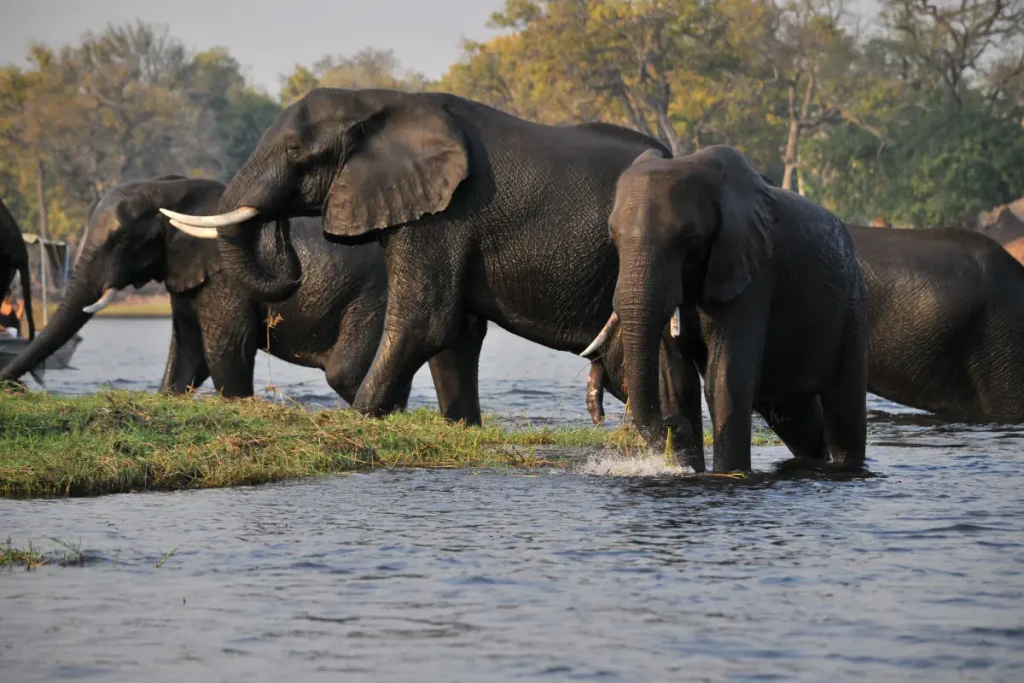
Related: 20 Amazing Elephant Facts
What can you do to protect elephants?
There are several ways that you can help protect elephants and other endangered species:
- Support organizations that work to protect elephants and other endangered species. You can donate your time or money to organizations that work on the ground to protect elephants and other endangered species or advocate for their conservation through policy and legislation (you can find a list of these organizations under the next title).
- Be a responsible tourist. If you are planning to visit areas where elephants live, make sure to choose a responsible tour operator who follows ethical guidelines for wildlife viewing. Avoid participating in activities that exploit or harm elephants, such as riding them or posing for photos with them.
- Reduce your demand for products made from endangered species. Avoid buying products made from ivory or other animal parts, as this can fuel demand for illegal poaching.
- Educate others about the importance of protecting elephants and other endangered species. Spread the word about the threats facing these animals and encourage others to join the fight to protect them.
- Support policies and legislation that protect elephants and other endangered species. Stay informed about conservation issues and advocate for policies that support the protection of these amazing animals.
Best Charities that Helps Elephants
Save the Elephants
Save the Elephants is a non-profit organization that works to protect elephants and their habitats in Africa. According to its website, Save the Elephants focuses on four main areas:
- Elephant conservation: Save the Elephants works to protect elephant populations in Africa through a variety of initiatives, including supporting anti-poaching efforts, promoting sustainable land use, and providing funding for research and conservation projects.
- Research: Save the Elephants conducts research on elephant behavior, ecology, and conservation, and uses this research to inform its conservation efforts.
- Education and awareness: Save the Elephants works to educate the public about the importance of elephant conservation and the threats facing these animals, and to engage people in the fight to protect them.
- Advocacy: Save the Elephants advocates for policies and legislation that support the protection of elephants and their habitats, and works to raise awareness about the importance of elephant conservation.
Website: www.savetheelephants.org.
Elephant Voices
Elephant Voices is a nonprofit organization that aims to protect and promote the welfare of elephants. They work to better understand the complex social and emotional lives of elephants and to use that knowledge to improve the way that elephants are cared for and managed in captivity and in the wild.
The organization carries out research, education, and advocacy efforts to support elephant conservation and welfare, with a particular focus on improving the conditions for elephants in zoos, circuses, and other forms of captive environments. Elephant Voices also works with local communities, governments, and other stakeholders to promote the conservation and protection of elephants and their habitats in the wild.
Website: www.elephantvoices.org
The David Sheldrick Wildlife Trust (DSWT)
The David Sheldrick Wildlife Trust (DSWT) is a Kenyan organization that works to protect and conserve wildlife, with a focus on elephants and rhinos. The organization was founded in 1977 by Dr. Dame Daphne Sheldrick, in honor of her late husband, David Sheldrick, who was a pioneer in the field of wildlife conservation in Africa.
The DSWT operates several programs to protect and conserve wildlife, including:
- An elephant orphanage, which cares for and rehabilitates orphaned elephants who have lost their mothers due to poaching, accidents, or other causes.
- Anti-poaching efforts to combat the illegal trade in wildlife, particularly in relation to elephants and rhinos.
- Community outreach and education programs to raise awareness about the importance of wildlife conservation and to promote coexistence between humans and wildlife.
- Reforestation and habitat restoration efforts to support the conservation of wildlife and their habitats.
- Veterinary care for injured or sick wildlife, including treatment for diseases such as elephantiasis and tuberculosis.
Overall, the DSWT’s mission is to protect and conserve wildlife, and to promote the sustainable use of natural resources in Africa.
Website: www.sheldrickwildlifetrust.org
The International Elephant Foundation (IEF)
The International Elephant Foundation (IEF) is a nonprofit organization that works to protect and conserve elephants and their habitats. The organization was founded in 1995 with the goal of promoting the conservation of elephants and their habitats, and to support research, education, and outreach efforts related to elephant conservation.
The IEF works to achieve its mission through several key programs and initiatives, including:
- Grants and funding programs to support research and conservation projects related to elephants and their habitats.
- Education and outreach efforts to raise awareness about the importance of elephant conservation and to promote the sustainable use of natural resources.
- Collaboration and partnerships with other organizations, including zoos, research institutions, and conservation groups, to support elephant conservation efforts.
- Advocacy efforts to influence policies and practices related to elephant conservation, including the promotion of humane and sustainable management of elephants in captivity.
Overall, the IEF’s mission is to protect and conserve elephants and their habitats, and to promote the sustainable use of natural resources for the benefit of both people and wildlife.
Website: elephantconservation.org
Elephants without Borders
Elephants Without Borders (EWB) is a nonprofit organization that works to protect and conserve elephants and other wildlife in Africa. The organization was founded in 1997 by Dr. Mike Chase and is based in Botswana.
EWB carries out a range of activities to protect and conserve elephants and other wildlife, including:
- Research and monitoring programs to study the movements, behavior, and ecology of elephants and other species, and to identify areas of importance for conservation.
- Community outreach and education programs to raise awareness about the importance of wildlife conservation and to promote coexistence between humans and wildlife.
- Advocacy and policy work to influence decision-making related to elephant conservation and the sustainable use of natural resources.
- Collaboration and partnerships with other organizations, governments, and local communities to support conservation efforts.
Website: elephantswithoutborders.org
Tusk Trust
Tusk Trust is a UK-based charity that works to protect African elephants and other endangered species, as well as to support the development of communities in Africa. According to its website, Tusk Trust works in a number of different areas, including:
- Elephant conservation: Tusk Trust works to protect elephant populations in Africa through a variety of initiatives, including supporting anti-poaching efforts, promoting sustainable land use, and providing funding for research and conservation projects.
- Community development: Tusk Trust supports the development of communities in Africa through initiatives such as education, healthcare, and sustainable economic development.
- Advocacy and policy: Tusk Trust works to raise awareness about the importance of elephant conservation and to advocate for policies and legislation that support the protection of elephants and other endangered species.
- Education and awareness: Tusk Trust works to educate the public about the importance of elephant conservation and the threats facing these animals, and to engage people in the fight to protect them.
Website: www.tusk.org
Amboseli Trust for Elephants
The Amboseli Trust for Elephants (ATE) is a nonprofit organization that works to protect and conserve elephants in the Amboseli region of Kenya. The organization was founded in 1972 by Dr. Cynthia Moss and is based at the Amboseli National Park.
The ATE carries out a range of activities to protect and conserve elephants, including:
- Research and monitoring programs to study the behavior, ecology, and social dynamics of elephant herds in the Amboseli region.
- Education and outreach programs to raise awareness about elephant conservation and the importance of protecting natural habitats.
- Advocacy efforts to influence policies and practices related to elephant conservation and the sustainable use of natural resources.
- Collaboration and partnerships with other organizations, governments, and local communities to support conservation efforts.
Overall, the mission of the Amboseli Trust for Elephants is to protect and conserve elephants and their habitats in the Amboseli region, and to promote the sustainable use of natural resources for the benefit of both people and wildlife.
Website: www.elephanttrust.org
Wildlife SOS
Wildlife SOS is a non-profit organization based in India that works to protect and conserve wildlife, with a focus on rescuing and rehabilitating endangered species and helping to reduce human-wildlife conflict. The organization runs several wildlife rehabilitation and rescue centers across India and also works to educate the public about the importance of protecting wildlife and the environment.
Some of the species that Wildlife SOS works with include elephants, bears, and leopards, as well as various species of birds and reptiles. The organization also works to raise awareness about the illegal wildlife trade and to advocate for stronger conservation laws.
Website: wildlifesos.org
Wild Aid
WildAid is a non-profit organization based in the United States that works to protect and conserve wildlife and the environment, with a focus on reducing the demand for illegal wildlife products. The organization works to raise awareness about the negative impacts of the illegal wildlife trade and to educate the public about the importance of protecting wildlife and the environment.
WildAid partners with governments, local communities, and other organizations to implement conservation programs and to advocate for stronger conservation laws.
Some of the species that WildAid works to protect include elephants, rhinoceroses, and tigers, as well as various species of marine life. The organization also works to promote sustainable development and reduce the impact of human activities on the environment.
Website: wildaid.org
Sources
- How many Elephants are left in the world? on the Elephant Guide website
- Elephant Population by Country 2024 on the World Population Review website
- Moon Landings: All-Time List [1966-2025] - February 2, 2025
- What Is Max-Q and Why Is It Important During Rocket Launches? - January 16, 2025
- Top 10 Tallest Rockets Ever Launched [2025 Update] - January 16, 2025
